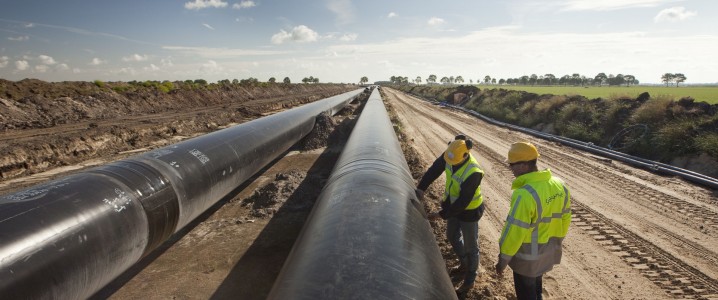
The call for Europe to reopen fossil fuel production in the North Sea has gained traction, echoing sentiments from across the Atlantic. Advocates argue for a return to drilling as a means to bolster energy security amidst ongoing geopolitical tensions. However, experts caution that returning to fossil fuels is a misguided strategy that could undermine long-term energy independence.
The notion of revisiting fossil fuel extraction, reminiscent of the 1970s, reflects a deep-seated allegiance to traditional energy systems. This appeal, driven by economic and ideological interests, seeks to steer Europe back into a reliance on fossil fuels, potentially jeopardizing the continent’s progress towards a cleaner and more self-sufficient energy future.
The implications of such a shift are particularly stark in the context of Europe’s painful experiences with energy dependency. When Russia invaded Ukraine in February 2022, Europe found itself vulnerable, heavily reliant on a single gas pipeline system. The subsequent surge in gas prices caused significant economic strain on both industries and households.
Although the United States is not comparable to Russia, the principle of dependency remains problematic. Relying on any single supplier, whether from a nation or a bloc, poses substantial risks, including price volatility and supply disruptions. This reality highlights the need for a diversified energy strategy rather than a return to past practices.
A hypothetical resurgence in fossil fuel production in Europe may seem like a viable option. Proponents suggest increasing exploration in the North Sea and reconsidering the Groningen gas field. However, the reality is that even with enhanced production, the overall impact would be minimal. The North Sea’s output has been in decline for years, having peaked decades ago. New discoveries are not only limited but also costly and time-consuming to develop.
According to the International Energy Agency (IEA), new oil and gas projects approved in Europe in 2024 will barely contribute to the region’s energy needs. The IEA’s estimates indicate that these projects will add only a small fraction to Europe’s total supply, far from meeting current demand.
Investing in fossil fuel projects locks Europe into a carbon-intensive future, which poses significant risks for both the climate and the economy. Such investments could lead to stranded assets—resources that may become unviable in the near future as the world shifts towards cleaner energy.
The path forward lies not in drilling but in embracing renewable energy sources. Europe has the opportunity to prioritize investments in wind, solar, and other sustainable technologies. These energy sources have become the most affordable options available, even without government subsidies. Innovations in battery storage, smart grids, and electric vehicles are advancing rapidly, providing the tools needed for a robust energy transition.
Europe must focus on enhancing its energy infrastructure to support this transition. This includes expanding transmission lines, increasing storage capacity, and integrating cross-border energy systems. By doing so, Europe can work towards a diverse and resilient energy system that reduces reliance on fossil fuels and enhances geopolitical independence.
While the lobbying from fossil fuel companies may continue, European leaders must resist the allure of returning to outdated energy practices. The emotional appeal of energy security is understandable, yet it is essential to recognize that a clean and diversified energy system offers greater stability, affordability, and health benefits in the long run.
This strategic shift towards renewable energy is not merely an ideological stance; it is a necessary economic decision. Europe has the potential to lead in renewable energy innovation, thereby securing its energy future. The focus should be on building sustainable infrastructure rather than prolonging the life of fossil fuel assets.
In summary, Europe faces a pivotal moment in its energy policy. The choice is clear: invest in the renewable technologies that can sustain the continent for decades to come, or risk repeating past mistakes. The future of energy in Europe depends on the commitment to move forward, leaving behind the reliance on fossil fuels and embracing a cleaner, sustainable energy landscape.






